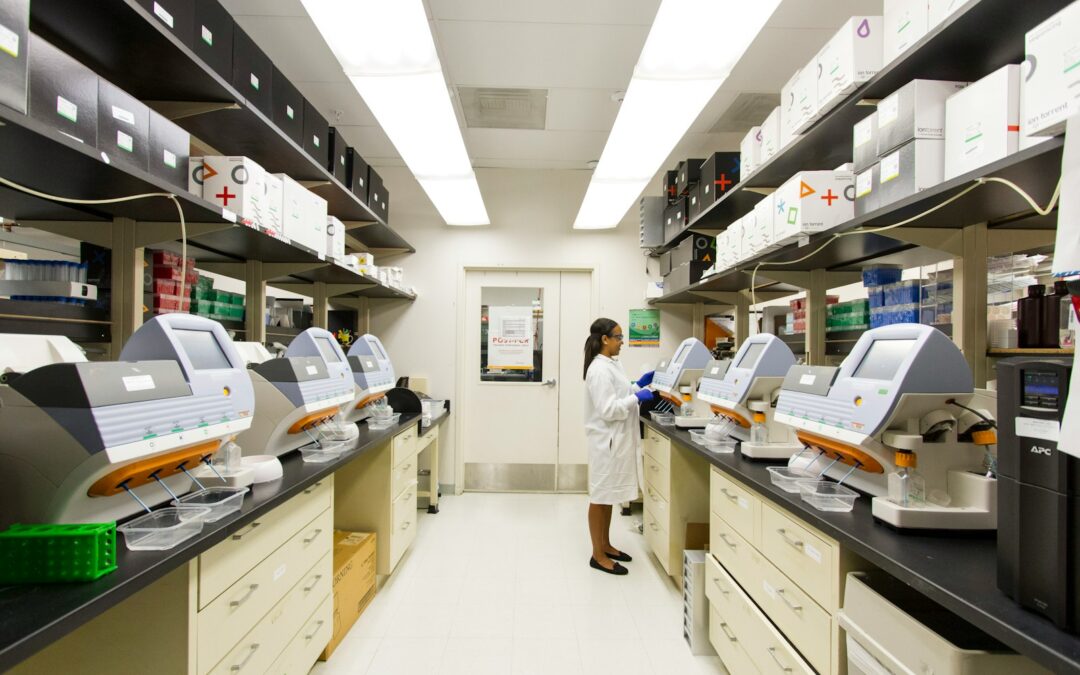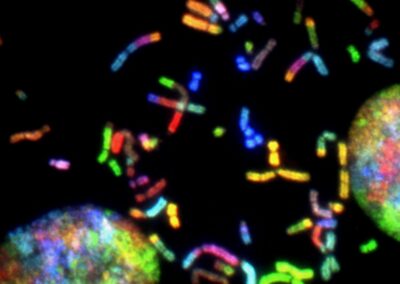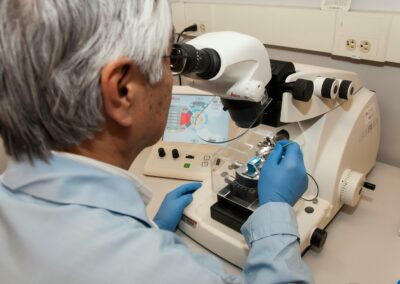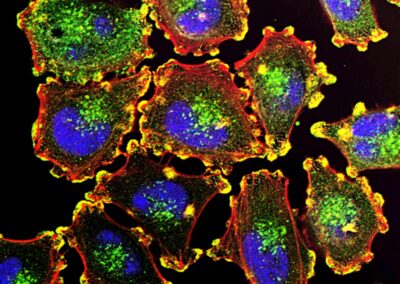Navigating the Complexities of Genetic Advancements
The Growing Importance of Ethical Considerations in Genetic Research
As genetic research advances at an unprecedented pace, the ethical dilemmas associated with it become increasingly complex. The ability to edit genes, predict genetic disorders, and enhance human capabilities presents remarkable opportunities but also significant ethical challenges. In regions like Saudi Arabia and the UAE, where technological innovation is a key driver of economic and social progress, addressing these ethical dilemmas is crucial to ensuring responsible and equitable development.
Saudi Arabia’s Vision 2030 aims to position the nation as a leader in biotechnology, emphasizing the importance of ethical frameworks in guiding this progress. Genetic research, particularly in areas such as gene editing and CRISPR technology, holds the promise of eliminating hereditary diseases and improving human health. However, without robust ethical guidelines, these advancements risk infringing on individual rights, exacerbating inequalities, and creating unforeseen societal impacts.
The UAE, with its ambitious tech initiatives and Dubai’s status as a global innovation hub, is also at the forefront of genetic research. Ethical considerations are integral to the UAE’s approach, ensuring that technological advancements align with cultural values and societal needs. By prioritizing ethical practices, the UAE can safeguard public trust and promote a balanced integration of genetic technologies into everyday life.
Key Ethical Dilemmas in Genetic Research
One of the most pressing ethical dilemmas in genetic research is the potential for genetic discrimination. As genetic testing becomes more accessible, there is a risk that individuals could be discriminated against based on their genetic information. This could impact areas such as employment, insurance, and social standing. To mitigate this risk, Saudi Arabia and the UAE must implement stringent privacy protections and anti-discrimination laws to ensure that genetic information is used ethically and responsibly.
Another significant ethical challenge is the issue of consent. In genetic research, obtaining informed consent from participants is crucial, yet it can be complex. Participants must fully understand the implications of genetic testing and the potential uses of their genetic data. In Riyadh, initiatives to enhance public understanding of genetic research and its ethical implications are essential. This includes educational campaigns and transparent communication about the goals and risks associated with genetic studies.
The prospect of human enhancement through genetic engineering also raises profound ethical questions. While the ability to enhance physical and cognitive abilities through gene editing is scientifically fascinating, it poses risks of exacerbating social inequalities and altering the essence of human identity. In Dubai, ethical guidelines must be established to regulate the use of genetic enhancements, ensuring that they are accessible and beneficial to all segments of society, and not just a privileged few.
Strategies for Responsible Genetic Research Practices
Implementing responsible practices in genetic research requires a collaborative effort among governments, research institutions, and the private sector. In Saudi Arabia, the establishment of regulatory bodies like the National Committee of Bioethics (NCBE) ensures that genetic research adheres to ethical standards. These bodies are responsible for reviewing research proposals, monitoring ongoing studies, and ensuring compliance with ethical guidelines.
Public engagement is another critical component of responsible genetic research. In the UAE, fostering a dialogue between scientists, ethicists, and the public can help align genetic research with societal values and expectations. This includes public consultations, participatory decision-making processes, and the inclusion of diverse perspectives in policy-making. By engaging the public, researchers can build trust and ensure that genetic advancements are developed transparently and ethically.
Education and training are also essential for promoting ethical practices in genetic research. Universities and research institutions in Riyadh and Dubai can incorporate ethics into their curricula, preparing the next generation of scientists to navigate ethical challenges. Training programs can focus on ethical decision-making, responsible data management, and the societal implications of genetic research. By embedding ethics in education, these regions can cultivate a culture of responsibility and integrity in genetic research.
Conclusion
The ethical dilemmas posed by genetic research are complex and multifaceted, requiring a comprehensive approach to address them responsibly. By implementing robust ethical frameworks, engaging the public, and prioritizing education and training, Saudi Arabia and the UAE can lead the way in ethical genetic research. Through collaborative efforts and a commitment to responsible practices, these nations can ensure that their advancements in genetic technology benefit society as a whole while respecting individual rights and promoting social equity.
#EthicalDilemmasInGeneticResearch #GeneticEthics #ResponsibleGeneticPractices #SaudiArabiaBiotechnology #UAEBiotechInitiatives #RiyadhGeneticEthics #DubaiBiotechAdvancements #AIInGenetics #BlockchainInGenetics #TheMetaverseInGenetics #GenerativeAIInGenetics #BusinessEthics #LeadershipInBiotech #ManagementInGeneticResearch #ProjectManagementInBiotechnology























